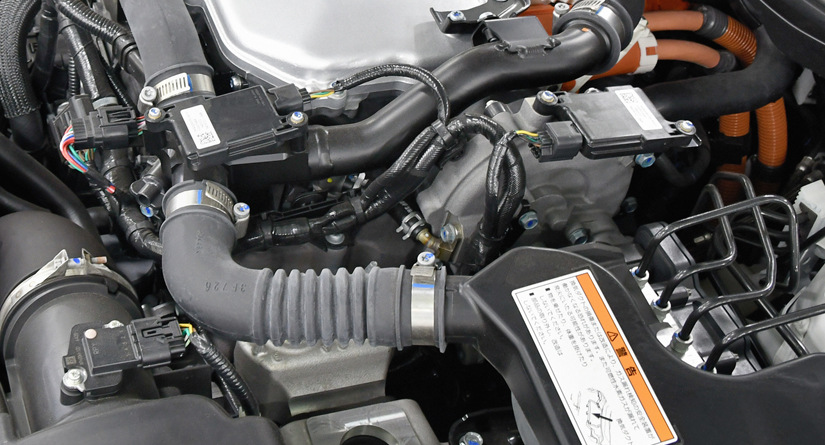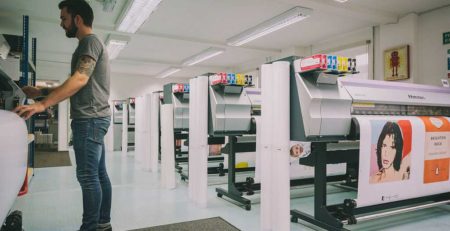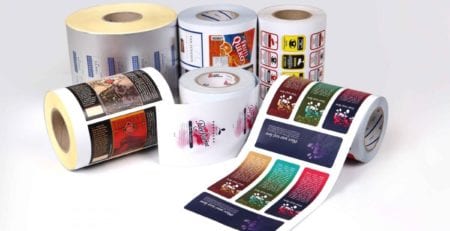High-Temperature Labels: Essential Tools for Industrial Applications
Heat-resistant labels have been designed specifically for use in situations and conditions with high temperatures. These labels track and identify products such as under-the-hood parts in a vehicle or items in steel manufacturing. In conditions with high temperatures, it is essential to differentiate products and parts.
Many industries, such as manufacturing, metalworking, automotive, aerospace, and electromechanics, work with high-temperature environments and need heat-resistant labels to stay organized. Here’s everything you need to know about the types of high-temperature labels available and what factors to consider when designing heat-resistant labels.
Types of Heat-Resistant Labels
Heat-resistant labels are made from various materials, each with its own benefits and drawbacks. When deciding between heat-resistant label materials, it is crucial to consider how you plan to use this label, the specific application, the environment, and the temperature range.
- Polyester. Polyester labels are made of a synthetic polymer and are incredibly durable. They can withstand temperatures up to 150°C and resist chemicals, abrasion, and moisture. They can also maintain their appearance over a long period of time. These characteristics make them a good fit for harsh environments. Polyester labels can be printed using various techniques, making them a good choice for many businesses since they can be readily available in different formats.
- Polyimide. Polyimide labels are made with polyimide, which can resist temperatures up to 300° C. These labels are most often used in industries that require extreme resistance to heat, such as in the electronics industry. Polyimide labels are created using the thermal transfer printing process, which makes them able to withstand harsh conditions.
Applications and Benefits of Heat-Resistant Labels
Using heat-resistant labels for labeling items that come into contact with high temperatures is commonplace for many industries. For example, the automotive industry uses heat-resistant labels to classify different vehicle parts. Once the items are placed within the vehicle, they will be exposed to high-temperature conditions and must be identifiable with their labels.
Another industry that utilizes heat-resistant labels for organization purposes is dry cleaning. Dry cleaners use these labels to identify each client’s clothing during the dry cleaning process. The labels are stamped onto the clothes’ tags and withstand washing and heat drying treatments.
One of the benefits of using heat-resistant labels is their durability in all conditions. In industries such as automotive or manufacturing, the work being done utilizes techniques that expose materials and products to conditions of heat and pressure. Under these conditions, it is crucial to accurately label and categorize materials because the work depends on it. Because of their durability, heat-resistant labels will allow you to keep things organized in the workspace, no matter the circumstance.
Factors to Consider When Choosing Heat-Resistant Labels
When it comes to choosing the correct heat-resistant label for your needs, it is essential to keep a few factors in mind, including:
- The temperature range the label will be exposed to.
- How long the label will need to adhere to the item or material.
- The conditions the label will have to withstand.
For something like dry cleaning, you will need to make sure the labels you choose are suitable to adhere to cloth and fabric. For car parts in the automotive sector, you will want to select labels that will not wear away after time. The labels on car parts must be readable years after installation, so the label chosen should have long-lasting ink and adhesion.
High-Temperature Labels That Suit Your Needs
Using heat-resistant labels is essential for several industries to stay organized and identify parts or materials effectively. As the technology used to create long-lasting, high-temperature labels continues to evolve, Royal Label will continue to provide its clients with high-quality, durable heat-resistant decals.
With Royal Label, you have the opportunity to customize heat-resistant labels. We can modify the shape and surface adhesion type to fit your needs. There are several customization and printing options available to help your business produce a label that fits your exact needs and specifications.
Choosing Royal Label for your industrial labels ensures that you and your company have the best labels for all your needs. Contact our team to learn more about our options and get a quote on your label project.





